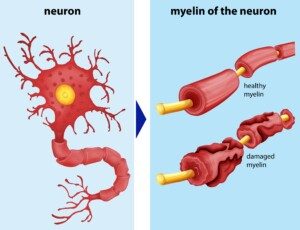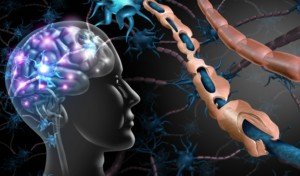Sjogren’s syndrome can be misdiagnosed as multiple sclerosis; symptoms are similar.
Sjogren’s syndrome can actually cause symptoms similar to multiple sclerosis (MS).
Sjogren’s syndrome is an autoimmune disease that is commonly associated with dry mouth due to decreased salivary gland secretion, and dry eyes due to decreased lacrimal gland secretion.
However, SS (like multiple sclerosis) can become systemic, affecting many areas of the body, including the nervous system.
As a result, symptoms similar to multiple sclerosis can result from Sjogren’s syndrome.
“Neurological manifestations of Sjogren’s syndrome are protean (considerably variable). Parkinson’s-like is unusual, but MS-like is not uncommon,” explains Ali D. Askari, MD, Professor of Medicine – Case Western Reserve University; Chief, Division of Rheumatology – University Hospitals Case Medical Center; Director, Rheumatology – University Hospitals Case Medical Center. Because SS commonly affects the joints, specialists in this disorder are often rheumatologists.
“In one study 20 percent of patients with what was called primary progressive multiple sclerosis turned out to have Sjogren’s syndrome.”
MRI findings on the brain, says Dr. Askari, can be very similar between Sjogren’s syndrome and multiple sclerosis.
“Other important neurologic manifestations seen in Sjogren’s syndrome include Parkinson’s-like or hemi-Parkinsonism with movement abnormalities including stiffness and tremors.
“Although in Parkinson’s there are not much MRI changes, in Sjogren’s syndrome there are MRI changes of the brain and therefore it could be a very helpful differential diagnosis point.”
And this is because brain lesions are also seen with multiple sclerosis.
“Neurologists are paying careful attention to these possibilities, and in cases of abnormal demyelinating findings on the brain MRI, which looks like cotton balls or smaller, they check the laboratory tests for the presence of antibodies which are commonly seen in lupus or Sjogren’s syndrome.” SS, MS and lupus are all autoimmune diseases.
“We have seen a number of patients with those findings and we have treated most successfully.
“The problem is when the lesions (on the brain) are chronic and they have caused permanent damage to the nervous system and it is difficult to be treated.”
Here is a general symptom comparison between Sjogren’s syndrome and multiple sclerosis.

Multiple sclerosis. Freepik/brgfx
Both diseases can present with many more symptoms than in the following list; the list is to show the striking similarities between Sjogren’s syndrome and multiple sclerosis as far as symptoms:
Sjogren’s syndrome symptoms:
Difficulty with chewing, swallowing or talking
Joint pain
Fatigue
Difficulty walking
Tremors
Numbness and tingling
Balance difficulties
Kinesthetic awareness problems (sense of body positioning in space)
Electric shock sensations in the face
Multiple sclerosis symptoms:
Numbness and weakness
Fatigue
Tingling
Pain
Electric shock sensations that arise as a result of particular movements of the head
Unsteady gait
Tremors; difficulty with coordination
Note: Some SS patients do not experience debilitating issues.
For these individuals, the disease is cause for annoyance (e.g., dry eyes and mouth, dental decay), rather than disability.
Update: As of April 2024, Sjogren’s syndrome is now known as Sjogren’s disease.











































